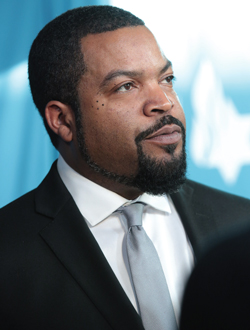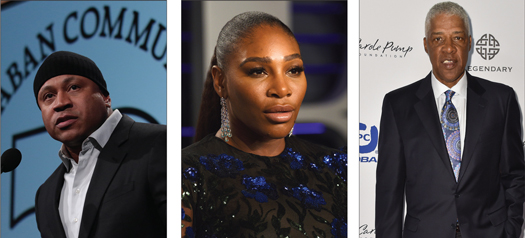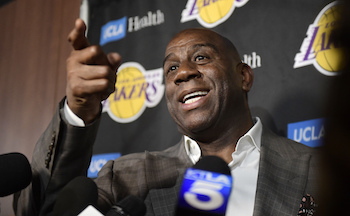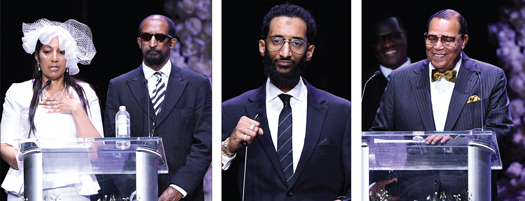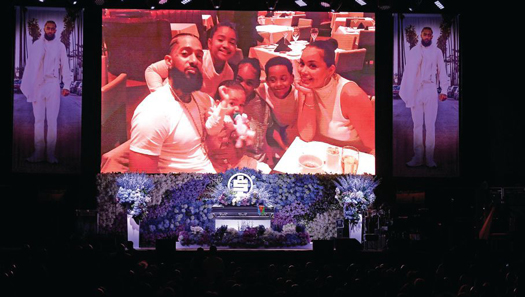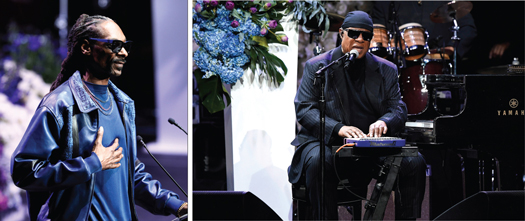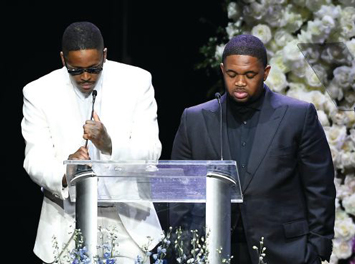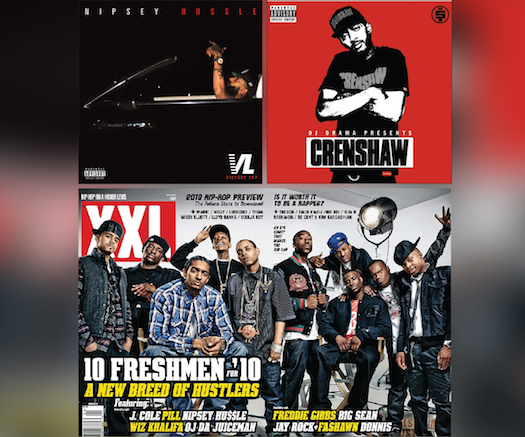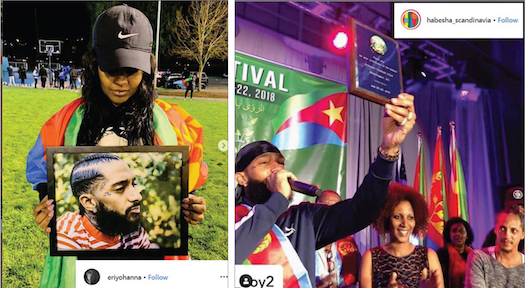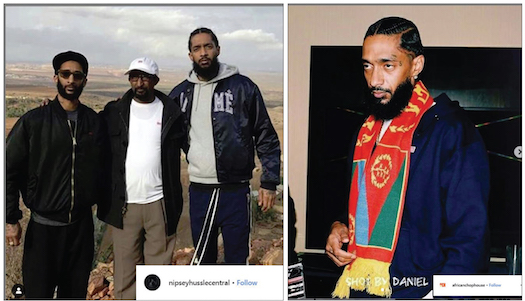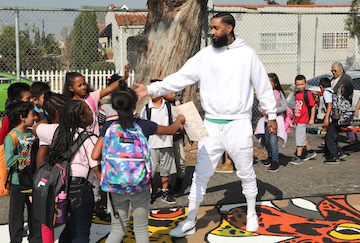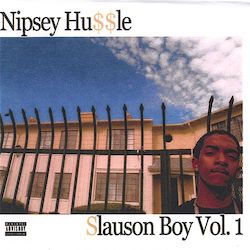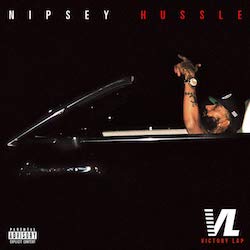By Eric Ture Muhammad Contributing Writer @etmuhammad
Service attendees respond to words of comfort and guidance from Min. Farrakhan. Photo: J.A. Salaam
The 87 year old beloved “Rock of the South” transitioned on April 22. The Nation of Islam pioneer was known affectionately as “Minister Rahman” or “Brother Rahman” inside and outside of the movement he loved and dedicated his life to. “We thank Master Fard Muhammad, for choosing another son of Georgia, the Honorable Elijah Muhammad. And we thank the Hon. Elijah Muhammad for his fearless, uncompromising stand on behalf of our people,” Min. Farrakhan said with the church pastor, Dr. Toussaint King Hill, Jr., sitting near him.
The Honorable Minister Louis Farrakhan offers prayers during Muslim janazah (funeral service), for Abdul Rahman Aquil Muhammad. Photo: Eric Ture Muhammad
“It is his example that Brother Rahman followed. It is his example that made us men. It is his example, his teaching, that made us women. It is his teaching that made us soldiers in a cause bigger than ourselves,” said Min. Farrakhan.
The Muslim janazah or funeral service is a brief message and prayers said for the deceased, the family and community. In the service is supplication, asking Allah (God) for comfort and support for the living and offering gratitude for the one the Supreme Being has allowed to depart this earth.
Mother Khadijah Farrakhan (left) First Lady of The Nation of Islam, con- soles the wife of Abdul Rahman Aquil Muhammad during services. Photo: Erick H. Muhammad
The shock of Min. Rahman’s passing produced a sense of loss, but Muslims traveled from near and far April 26-28 to celebrate his life.
“Brothers and Sisters we are sad, but we are exceedingly glad that Allah sent such a beautiful soul our way,” said Min. Ishmael Muhammad, student national assistant to Min. Farrakhan. “We are a grateful Nation, a grateful family. We ask Allah to comfort the family. And we ask Allah, God, not to deprive the family and a grateful Nation of his reward. And to not make us fall into a trial after him.”
“Brother Rahman is alive, but we perceive not. His work and his legacy remains for us to carry on,” he added.
He was born Samuel Saxon, Jr., the second oldest of five children October 1, 1931 in segregated Atlanta. Although he grew up in a household where acquiring higher education was emphasized as a way for Blacks to excel, he opted for the streets. Seeing the contradictions in how Blacks were treated affected him deeply.
He first heard the Teachings of the Hon. Elijah Muhammad in 1955 in Atlanta, but later joined the Nation in Los Angeles in 1956 along with his wife Mildred, who he later renamed Zarifah Rahman Aquil, an educator. He relocated to Chicago in 1957 after the Honorable Elijah Muhammad hired his wife as an educator at Muhammad University of Islam—the Nation’s independent school.
Guests, family and well wishers at Muslim janazah (funeral) service for Abdul Rahman Aquil Muhammad. Photo: Eric Ture Muhammad
In Chicago, he rose when Supreme Captain Raymond Sharrieff made him a Lieutenant and then First Officer of the Fruit of Islam, the name given to the military training of the men who belong to Islam in North America. He and others established an Honor Guard for the Hon. Elijah Muhammad, an FOI squad specially trained in the security and personal safety of the leader. He served on the security team for a decade.
When Messenger Muhammad called on the Believers in Chicago for greater help one night, it was time to go. In 1961, he decided to return to the West Coast after Muslims from Los Angeles approached him. A stop in Miami revealed a struggling temple and he started working there. He was made Miami’s FOI captain. He stayed in Miami until 1969. It was in Miami that he “fished” Muhammad Ali into the Nation of Islam. Mainstream media erroneously credits Malcolm X for recruiting the young boxer, but it was “Captain Sam X,” as Min. Rahman was then called, who nurtured and advised the young athlete in boxing and faith.
The Rock of the South
From 1969 to 1975, Min. Rahman was sent to Atlanta as the minister and Southern Regional Representative of the Nation of Islam. His region spanned everything South of Washington, D.C., to the deepest U.S. southern border in Texas. It was in Atlanta that progress was made in economics and education. He led the Muslims to build a strong mosque, four restaurants, three fish markets, one bakery, a haberdashery, boutique, and a sewing center.
Unity and productivity resulted in two tractor trailer trucks and a refrigerated unit to transport fish. “We sold 100,000 pounds of fish a month,” Min. Rahman told The Final Call in 2004. The imported fish was captured into international waters, frozen and shipped to Nation of Islam mosques for sale under the Honorable Elijah Muhammad’s economic program. The Muslim school went to the 12th grade with 18 teachers who never missed a paycheck. Mosque attendance was 1,100 to 1,500 every Sunday at both mosques under Min. Rahman’s leadership.
It was the early 1980s when Min. Rahman stood back up to aid Min. Farrakhan in the rebuilding of the Nation of Islam after major changes in 1975 and the total dismantling of the Nation, its economic program and rejection of the message of Elijah Muhammad.
He helped to bring the Nation back.
A life well lived
“To the beloved family of whom I am a member, to the beloved friends and followers of the Hon. Elijah Muhammad and to all those that his life touched: I know that if you could speak, you would have so many wonderful things to say about our journey with Brother Rahman,” Min. Farrakhan said to the audience packed into church pews. “But in Islam, our funerals or janazahs we are not permitted to do eulogies. … Because God knows the pain. He is the author of life and no soul comes to life without His permission and He also is the author of death. And none of us can die without His permission. … It is God who calls time, but ofttimes with our help,” he said. How we decide to live our lives largely sets the term for how long we live, the Minister explained.
The Honorable Minister Louis Farrakhan and Assistant Minister Ishmael Muhammad con- duct services at the historic West Hunter Street Baptist Church in Atlanta, Ga. Photo: Eric Ture Muhammad
The powerful message laid out the beauty of God as the giver of life offering guidance for life, accepting the will of God as the way to peace, gratitude for existence and proper service to God as exemplified by Minister Rahman. Prior to the funeral at the church, the remains of Brother Rahman lie in state at Muhammad Mosque No. 15 in Atlanta.
“This was the best janazah I ever heard,” said Nation of Islam Student Southern Regional Representative Abdul Sharrieff Muhammad, who is based in Atlanta. “I think Christians, Muslims, Agnostics—everybody should take something from that. It was so clear. Everyone should receive that.”
Witnessing The Honorable Minister Louis Farrakhan speak Saturday raised my reverence for The Author of Life and The Author of Death (God),” began Ms. Ankhet Amber Williams, founder of The Art of Esteem, an Atlanta-based international youth program. “As the Minister explained, ‘If you’re not at peace with God, then this (the loss of Minister Abdul Rahman) becomes a terrible, terrible event in the lives of those who are left behind. We are not here to fall down in sorrow. We are here to praise God for the life that he gave Minister Rahman,” she exclaimed.
“Hearing the Honorable Minister Louis Farrakhan, drew me closer to understanding and left a sense of duty on my heart. The Minister reminded us, Minister Abdul Rahman lies here as an example to us of how he used the time that God gave him ... Rahman left with the praise of God on his lips!” and later the Minister asked, “who will take the baton? My heart raised it’s hand,” she closed. Ms. Williams added how thankful she was for being present for the janazah describing it as a “special moment.
Service attendees respond to words of comfort and guidance from Min. Farrakhan. Photo: J.A. Salaam
Annie Muhammad, a Nation of Islam Pioneer and very close family friend of Minister Rahman and family, joined Muhammad Mosque No. 15 in 1969. “I was very pleased, I thought it was a very good Janazah because the Minister gave us some beautiful words. What Minister Rahman had done in this city and a lot of us were not aware of the things that he had done nor did during his administration. I know he had all the businesses; I know that, and we worked hard to make a mark in this city and that was some of the highlights that I really enjoyed hearing him speak of.”
She reflected how her children and Minister Rahman’s children grew up together. “With me being in the mosque a lot and helping, they all became friends. We are like family. They grew up together and Otha, my oldest son and Minister Rahman’s oldest son were best of friends. They all went to Howard University together. They came out together and his second home was Minister Rahman’s home. So I am blessed and happy that we were able to be here with his children during this bereavement. All of my girls came to this funeral and we went over to the house to help support them,” she said.
Under the Most Hon. Elijah Muhammad, Minister Rahman’s accomplishments in the South were unparalleled.
“He did such a work that when God called him to walk no more, to talk no more; he said enough. He did enough, that we can feed on the works of such a man and be inspired with the time that is left for us,” said Min. Farrakhan. “But he had a baton in his hand. Who will live the life that I lived? Who will walk the path that I walked? Who will suffer for the sake of truth like I suffered?” (See related story page 20.)
After members of the FOI and family hoisted the casket of ‘The Rock’ into the air, their chants of “Allah U Akbar!”—God Is the Greatest!—as the men loaded the remains of beloved Min. Rahman into the horse driven carriage that carried him to his internment at the Lincoln Cemetery.
Casket of Bro. Abdul Rahman Aquil Muhammad. Photo: Haroon Rajaee
After prayer and final words from the Minister, funeral goers placed earth on top of the casket with friends, Believers and family following suit. The casket was lowered, and the grave was filled in. Children of Muhammad University, whose photos adorn the walls of Minister Rahman’s welcome desk in the lobby of Muhammad Mosque No. 15 in Atlanta, lined up to help shovel earth.
“He’s (Min. Rahman) a good guy,” said Shahid Muhammad 11, of Muhammad University of Islam. “He represents the Nation of Islam and I’m glad that the Minister came here and spoke for him today. So he could honor him and what he did for the Nation of Islam and for Atlanta.”
“We knew him as ‘The Rock of the South,’ because he knew how to build and pull people together and get them to work,” reflected Abdul Wahid Muhammad, a pioneer and helper to Min. Farrakhan and a longtime friend of Min. Rahman. “He (Rahman) built the empire for the Nation of Islam in the South under the Most Honorable Elijah Muhammad in the ’60s. He started in Miami, then was sent to Atlanta, and when he got there he went to work. He laid a strong foundation for the Nation,” he recalled.
“Even though I was in L.A. on the West Coast, we were always in competition with the Believers in Atlanta with Rahman and New York mosque under Minister Farrakhan. It was hard to beat the Atlanta mosque fishing and producing. They were strong competition and Rahman always challenged other cities to try to out-soldier them. He had the South wrapped up and the people loved and respected him.”
“I came in ’81,” Anjahil Muhammad told The Final Call. “Minister Rahman was back in the Nation shortly after that time. As much as he had accomplished and did and the people that he had knew in his life, he didn’t act like ‘I’m the Big I and you’re the little U.’ Everybody was just equal with him,” she said.
Anjahil Muhammad raised sons by herself. “My son said that he (Min. Rahman) would take them aside and I didn’t know this. When they were young and growing up in the Nation growing up without a father, and he would in part give words to them, encourage them and teach them to help them, you know to feel good about themselves and to be stronger young men. He had an impact on so many people, but he just was laid back and never talking about how wonderful he was. He was just wonderful.”
Throughout Atlanta you can find The Rock’s influence, in particular “The Bluff,” a Black neighborhood Muslims are working to revitalize with the 10,000 Fearless Headquarters of the South, which is devoted to making Black communities safe and decent places to live. Nearby is Blue Seas Restaurant, Your Supermarket and, of course, Muhammad Mosque No. 15, which Minister Rahman served for so many years.
A freshly painted mural adorns a wall of the Abdul Rahman Muhammad Fellowship Hall, painted by pioneer Theresa Muhammad of Mosque No. 15B.
Carriage escorts casket of Bro. Abdul Rahman Aquil Muhammad. Photo: Haroon Rajaee
Willie A. Watkins, funeral director and owner of Willie A Watkins Funeral Home in Atlanta handled Min. Rahman’s body transport. They had been friends since 1971. “I was a loan officer at Citizens Trust Bank, an all Black bank,” Mr. Watkins recalled. “When all of a sudden one morning, everyone ran upstairs telling me I had to do something. About ten Black men walked in the bank demanding to see the manager. Well, I went on down and took a peek, and it was Rock,” he chuckled. “Rock had $10,000 cash he wanted to deposit with the bank. Nobody in 1971 Atlanta had ever seen Black men coming to banks, handling money like that.”
He and The Rock were fast friends ever since. He worked with the trailblazing Muslim selling clothes at the Muslim clothing store. “He taught me business and how to be a man,” added Mr. Watkins.
|
Atlanta City Councilman Andre Dickens presents proclamation honoring Minis- ter Rahman Muhammad whose daugh- ter Rasheda Muhammad accepted on his behalf. Photo: Erick H. Muhammad
|
Minister Farrakhan thanked Pastor Toussaint Hill of West Hunter Street Baptist Church for making the church available. “Our thanks to you, dear pastor, for always opening the door of this historic house of worship to allow the Muslims to come and speak here; bury our dead here, marry and go into life’s journey from this sacred place,” he said.
The Minister also acknowledged the great liberators and fighters for Blacks who hailed from Georgia. “We could name all the great ones, but the Rock—of all the wonderful men and women that Georgia has produced, great spiritual guides, and teachers and warriors—I must be a little personal: Of all the warriors that Georgia produced, it is this warrior (Min. Rahman) that I believe it will be borne out that he was the greatest of them all.”

